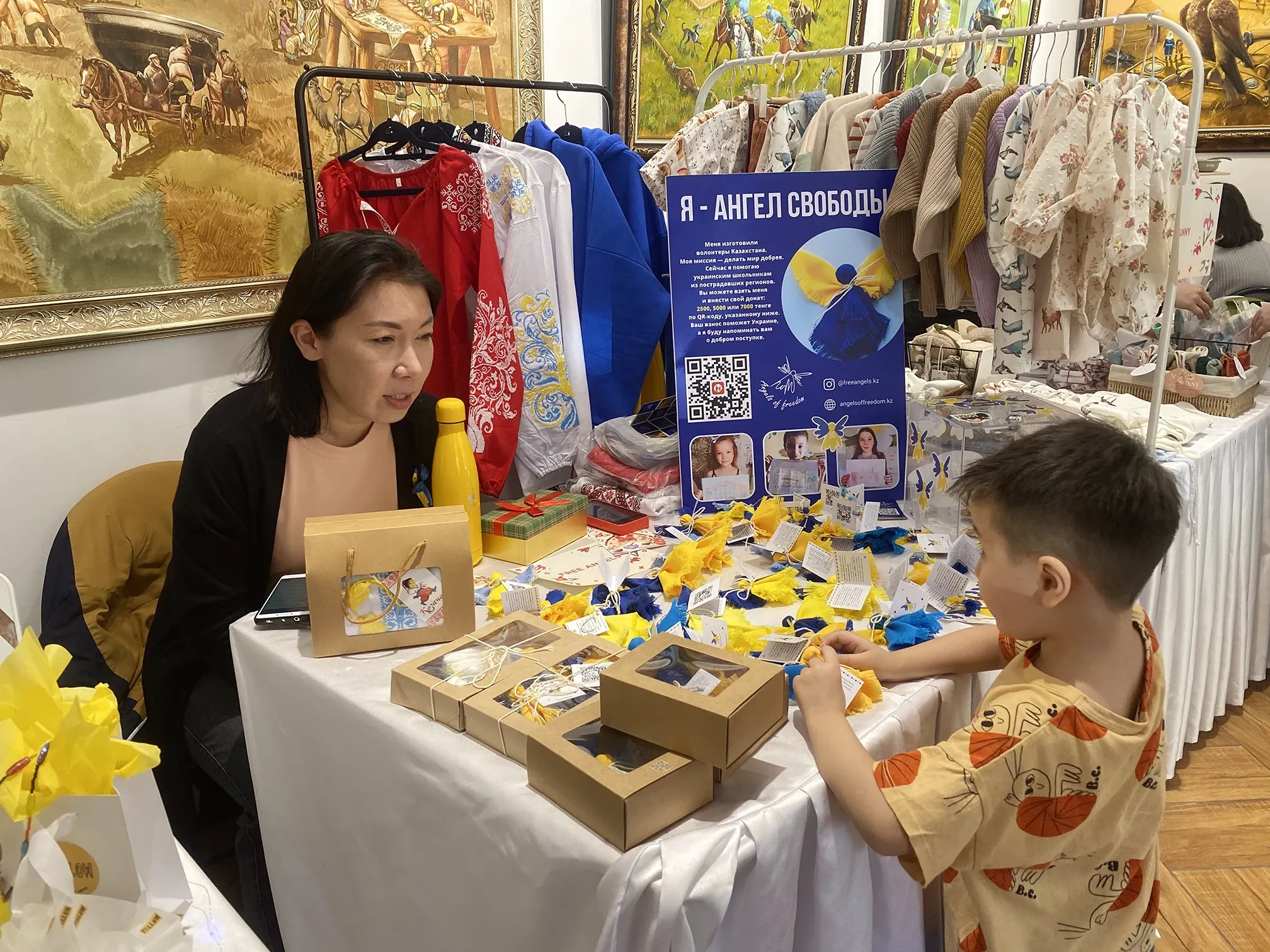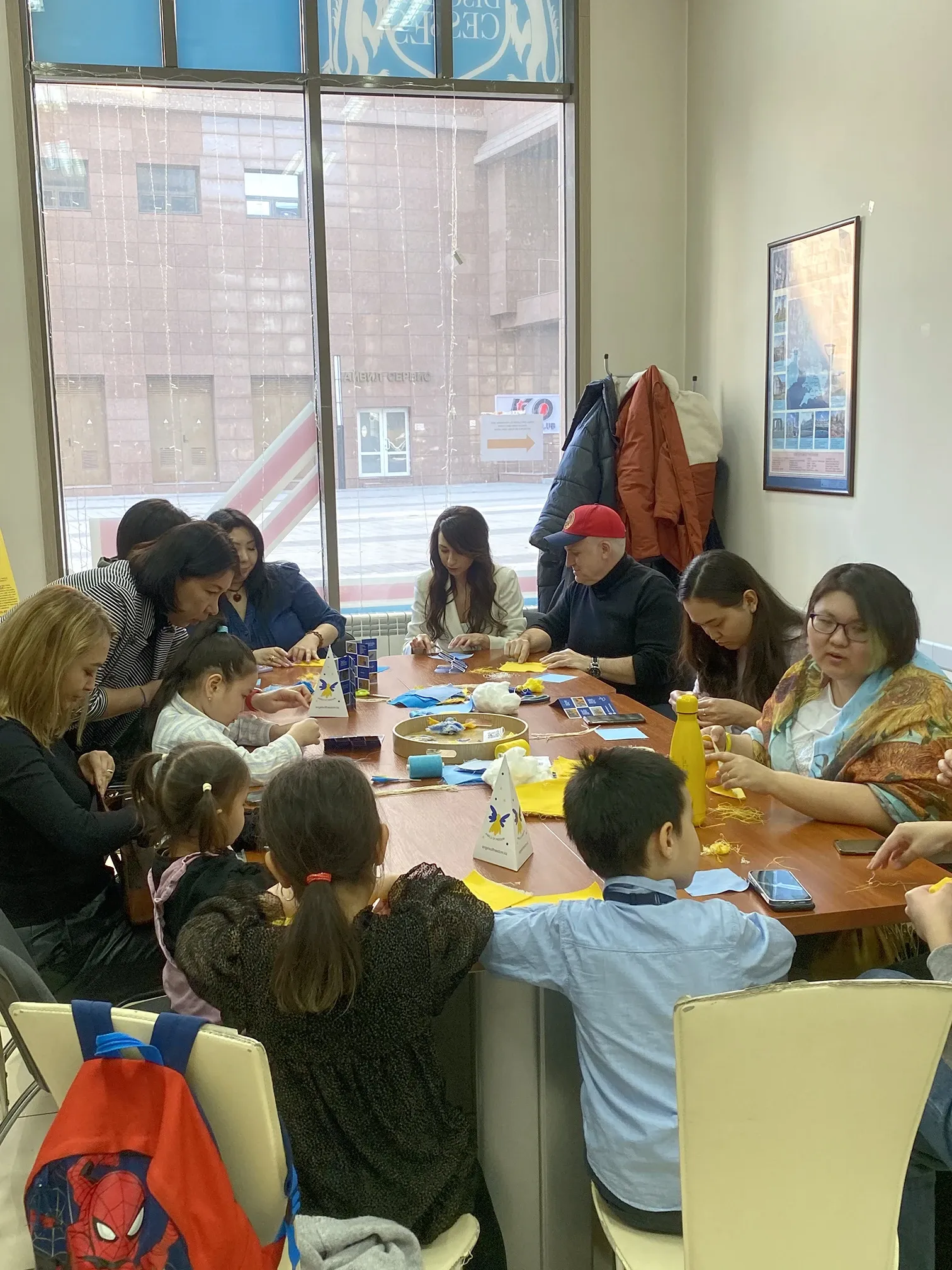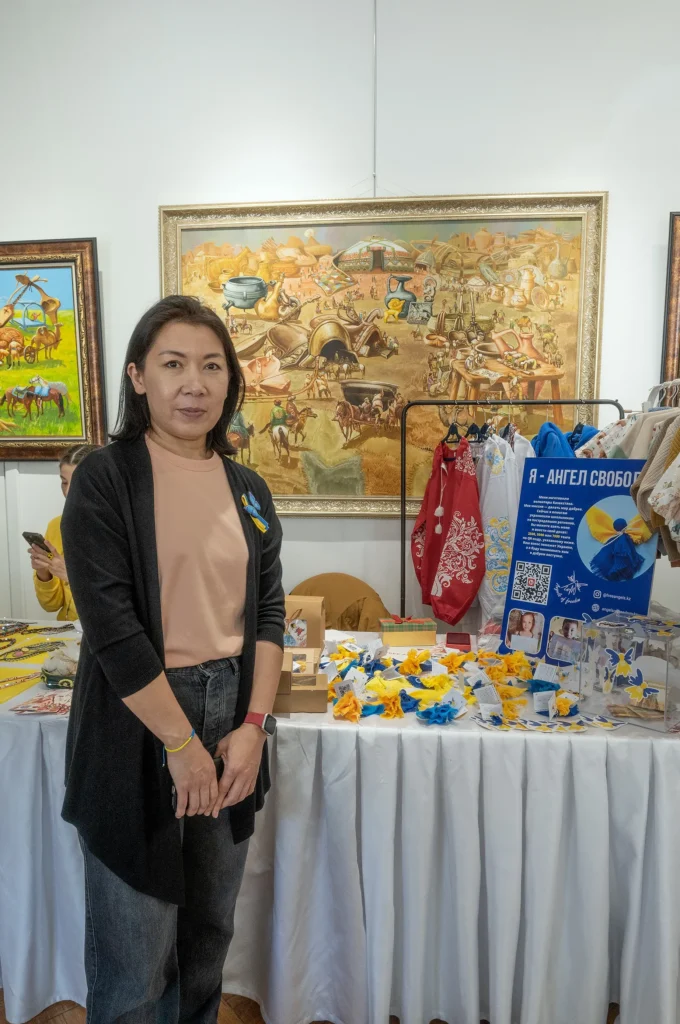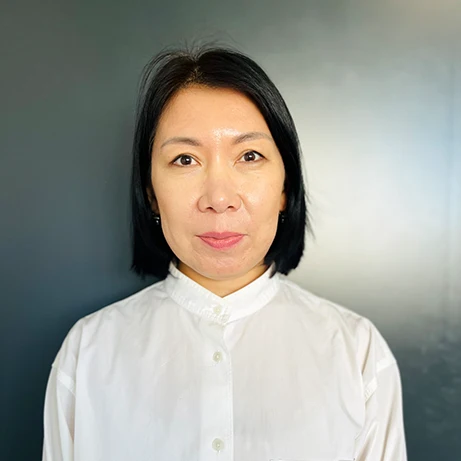For me, Angels of Freedom is a symbol of freedom, light and hope for the world.
— Dinara, why is it important for you to participate in volunteer activities and help restore Ukrainian schools?
— I have been volunteering all my life, starting from the university years. I participated in projects assisting orphanages in the Aktobe region. We took three orphanages under our patronage, we also worked with the Youth House. I always tried to help. I had not had close ties with Ukraine earlier. After the breakout of the war, I got to know a close friend of my sister who now lives in Kyiv with her husband. We keep in touch with her now. This is my only personal connection with Ukraine. But Ukraine is still a very close country for us and, therefore, it was the most natural thing for me to start helping. It was not always possible to get involved into other charity projects, but in this case, everything is easy: tolokas are held quite often, you can always join when you can, when you have time. Why is it important to help children? Because they are our future.
— Usually, people just donate money to support Ukraine. Why do you prefer a different form of support, which is not limited to donations?
— I like people interaction. The atmosphere at tolokas and fairs is very interesting because they unite people from Kazakhstan, Ukraine, Russia. And they all share one goal — to help children. I saw how strong people are in their spirit. Notwithstanding the problems they have, they still find time to come and make an “angel”. The main motivator is people. Despite the information attacks, people want to believe in something good and fair. And here is such a platform, where you can talk about something emotional and do a good deed. At the same time, you don’t spend much, only your time, there is no need for financial contribution. And it’s always very interesting to talk to people because everyone has her/his own story.


— What do people discuss at tolokas, what stories do they share?
— People talk about their lives, their ancestors — grandparents, how they lived, about what difficulties they have to go through now just to be able to communicate with their relatives. These are common people, you put yourself in their shoes and understand how hard it is for them.
— Is the war on TV different from the war that people talk about?
— Exactly. But we also have little information, especially, there was little information at the beginning. Now, you realize that everything is completely different.
— Did the direct interaction with Ukrainians change your attitude to what is happening?
— It did not, I always wanted to help. But there is more motivation. When you make “angels”, it seems that this is a kind of a trifle, a little thing, a minuscule, a drop. But afterwards, when you see what it results in, how many people come, how many donations they make, you see video and photo reports, you understand how your little help can turn into a big thing.
— What thoughts do these photo and video reports evoke in you?
— In these moments I think that we must go on… and we need to think of the people who are there. Therefore, I want as many people as possible to get to know about the project. It seems that many people do not actually appreciate that with little bits you can build something big and good. From these photos and videos, we can see how greatly the schools were damaged and how much more help do the children need. I was really touched by our last conversation with Yevgeniy and Iryna [project coordinators — editor’s note]. They said that recently a request has come from kindergartens as well. They have the bomb shelters, and when, for example, an air raid alarm sounds during quiet hours, the tutors urgently wake the children up and take them down to a cold shelter, where the kids are put to sleep right in their coats. These shelters have concrete floor, without even simple tiles. It is terrifying even to think about it. Therefore, we will start helping the kindergartens as well.
When people hear that it’s for children, for schools, it naturally prompts a kind reaction from everyone. People understand how vulnerable children are.
— Some people try to distance themselves from these events justifying it by leaving in another country. And the war becomes for them just a part of information background. Why is it hard for you to take the same position?
— I have met such people. But when I come across them, I want to help even more, to talk about what is happening, how children suffer, about our project. I cannot be indifferent to the grief of other people. Fortunately, the people around me share my feeling. Both my family and my colleagues mostly support Ukraine. We even organized our own events and raised funds, last year we organized an auction. We were selling the works of Kazakhstani artists and sculptors, and the proceeds were sent to the Ukrainian Embassy. Now, we will try to involve other diplomatic missions into the Angels of Freedom project.
— Why is it important for Kazakhstanis to get actively involved and support people who happened to be in the hotbed of war?
— Because we are the sister nations. We should also understand that we ourselves can happen to be in the similar situation. And who then must help Ukrainians, if not us? Kazakhstanis always beat their breast claiming that “we are the most hospitable and friendly”. When is then the best time to demonstrate these qualities and help our neighbours, our brothers and sisters, if not now?
— Is it difficult or easy to be a volunteer of the Angels of Freedom project?
— At first, it was very easy. Now it’s a little more difficult, in a sense that you may come across different people. At the fairs, different people approach with different reactions. Therefore, you need to be ready for various comments and questions. At the same time, you already know your volunteer mates, you trust them, and I am very pleased to be part of this team.

— You mentioned that people react differently on the project. Can you give any examples?
— There were situations when people asked: “Why don’t you help Kazakh schools? Are they completely in order?” You don’t expect this sort of question. It seems that people should understand that there is a war there, while we live in peace. And the scale of destruction is completely incomparable. It still seems a kind of nonsense to me. I was surprised to see people who think that way. They were not people of retirement age when their arguments can be explained by the lack of access to social media and information. There was also another situation when people pretended not to understand either Russian or Kazakh. When I switched into English they goggled and left. But fortunately, these people gave place to many others who left donations and said: “We know.” There are many more positive responses. Often families show up and the wife tells the story to her husband instead of us, and everyone, including children, takes one “angel”. Once, a man has run up in hurry: “Can I donate immediately — my phone battery is dying!” And at the last second, he manages to read the QR code and transfer money.
— Is the size of donation fixed?
— We recommend donating 2500 tenge or more. And we give an “angel” as a keepsake. But people send as much as they can.
— And what was the biggest donation?
— In my presence, a woman gave 40,000 tenge in cash and she did not take anything in return. As I understood from her, she was a person who regularly helps others. When people hear that it’s for children, for schools, it naturally prompts a kind reaction from everyone. People understand how vulnerable children are.
— Were there any famous people among those who donated?
— Yes, there were popular bloggers. Arsen Tusupbekov hosts a podcast. He and his wife regularly come to buy the “angels”. Gulden Shokatova (Nugumanova), a stylist, told us that she hung an angel by her daughter’s bed.
— How many people a day did you have to deal with at a fair?
— It differs. At shopping centers, the flow of people is very significant, but people do not come there aiming the fair — they run about their own business. And when the location is smaller, for example, in a gallery, less people come but they are more focused on shopping, they approach our stands with interest and ask questions. On average, around 30 people come up to our tables. But we work for 2–3 hours, mostly in pairs.
When you make “angels”, it seems that this is a kind of a trifle, a little thing, a minuscule, a drop. But afterwards, when you see what it results in, how many people come, how many donations they make, you see video and photo reports, you understand how your little help can turn into a big thing.
— What is necessary to scale up the Angels of Freedom project?
— Raising people’s awareness, because there is definitely a desire to support Ukrainians, but not everyone knows how to do it.
— Dinara, how would you continue the phrase “Angels of Freedom project is…”?
— For me, Angels of Freedom is a symbol of freedom, light and hope for the world.
